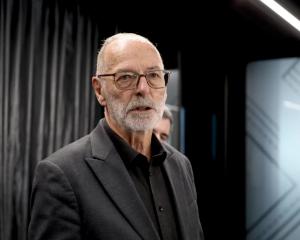
A Northland woman who played a crucial wartime role in cracking German secrets has died at the age of 104.
Lady Ellen Elizabeth Reed died at her home in Paihia on August 30 after an extraordinary life which included deciphering Nazi secret codes and living for decades in Nigeria.
Lady Elizabeth, as she was usually known, was part of the famous Bletchley Park code cracking team which broke the Germans' Enigma code during World War II.
Their success, which built on the work of earlier Polish code crackers, allowed Britain to eavesdrop on secret Nazi communications and helped swing the war in the Allies' favour.
Though her connection to Paihia spanned 45 years Lady Elizabeth kept a low profile in the town and usually declined interviews. She rarely spoke about her crucial wartime work, even to her own family.
She was, however, actively involved in many aspects of Paihia life, especially heritage, drama and the Anglican Church. She helped maintain the grounds of St Paul's, better known as the Stone Church, for many years.
Lady Elizabeth also attended Waitangi Day commemorations every year and in 2019 was a guest of honour when Prince Charles and Lady Camilla were formally welcomed to the Treaty Grounds. She was seated on the mahau (porch) of Te Whare Rūnanga (the carved meeting house) immediately behind the royal couple.
True to her adventurous spirit, she celebrated her 102nd birthday by parasailing over the Bay of Islands with her youngest daughter.
Lady Elizabeth had hoped for a big celebration for her 104th birthday but that was thwarted by Covid-19 restrictions.
Born Ellen Elizabeth Langstaff in Canada, she was raised in the United Kingdom where she gained a first-class honours degree in French and German at Cambridge University.
In 1939, aged 23, she was hired to work at the top-secret Bletchley Park facility in Milton Keynes, about 80km from London.
Initially she was tasked with typing messages into code but later she translated deciphered German communications, a role previously reserved for men.
She was eventually promoted to personnel officer and personal assistant to Group Captain Eric Jones, who headed the famous Hut 3 responsible for intelligence on the Wehrmacht (German defence force) and Luftwaffe (German air force).

In 1945 she married New Zealander Nigel Reed and moved to the then British colony of Nigeria, where he worked as a court magistrate.
They opted to stay after the West African nation gained independence in 1960.
When he retired in 1975 they had no appetite for British winters so divided their time between the UK and a home they built in Paihia. They lived fulltime in Northland from 1995.
When her husband, by then Sir Nigel, died in 1997, Lady Elizabeth was determined to stay in their Paihia home which, with the help of live-in carers, she did until the end.
A private funeral service was held due to Covid-19 restrictions.
Lady Elizabeth is survived by two of her three children, Eila Searles and Caroline Reed, as well as five grandchildren and two great-grandchildren.
Comments
RIP Lady Reed.
How many of these outstanding people are there, or have there been, within the NZ community? I do hope that some enterprising person is maintaining a history. She may have been reluctant to share her story from WWII but never the less it deserves to be told and remembered.











